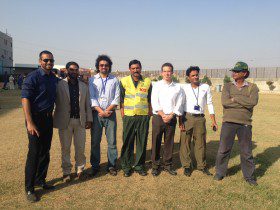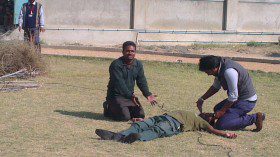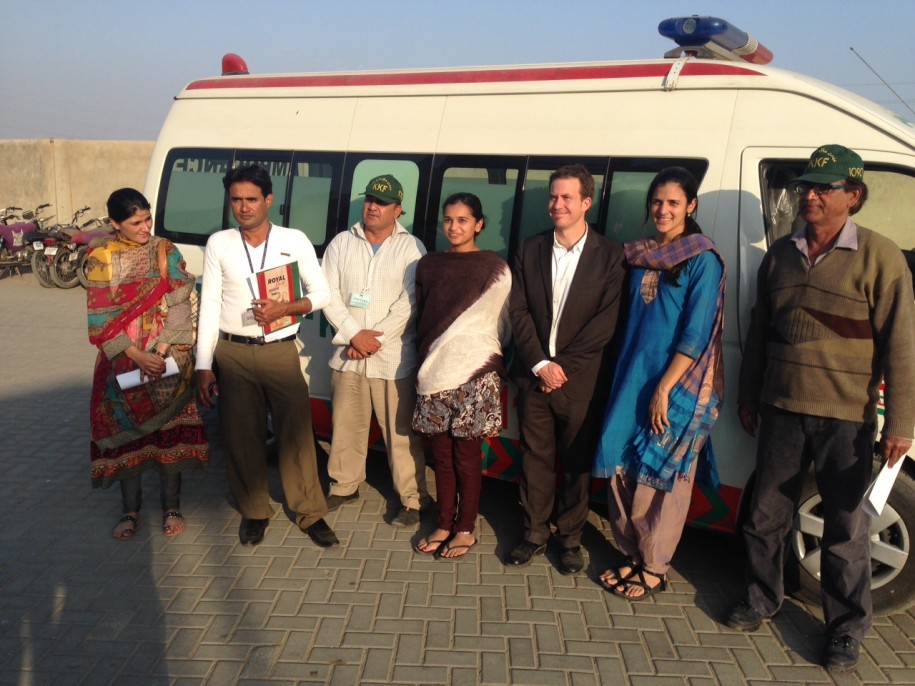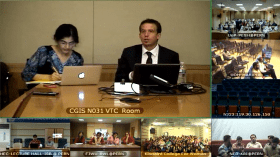Disaster Relief and Mental Health
Project Leaders
Jennifer Leaning, FXB Professor of the Practice of Health and Human Rights, Harvard School of Public Health
Ruth Barron, Cambridge Health Alliance
Stephanie Kayden, Director, Humanitarian Studies, Harvard Humanitarian Initiative, Emergency Physician, Brigham and Women’s Hospital, Instructor in Medicine, Harvard Medical School
Junaid Razzak, CEO Aman Health, Aman Foundation
Next Steps
The team will execute additional trainings for capacity-building by:
- Educating hospital and emergency personnel, paramedics and managers on field triage and pre-hospital medical treatment, and principles of incident command and disaster response.
- Promoting the coordination and cooperation at all levels, including provincial, city, hospital and pre-hospital providers.
- Creating a simulation of mass causality response at paramedic academies and hospitals.
- Training in security for hospital leaders, paramedics and first responders.
- Incorporating psychological first aid into the paramedic academy.
Partnerships
SAI and Aman Foundation Partnership
In the past, Karachi has had a baseline of mental illness, but in recent years there are increased occurrences of pervasive trauma due to common occurring disasters. The population of Karachi is now severely impacted by the ongoing trauma. Educated people are leaving the city, and first responding are burning out, Karachi is neither pre or post conflict, and there is a pervasive fear all the time.
A meeting of Harvard clinicians from HMS, HHI, HSPH and Dr. Junaid Razzak, CEO Aman Health was organized by SAI in June 2013 to discuss key issues of mental health systems and disaster response in Karachi.
From the meeting, there emerged three areas of focus for collaboration between Harvard and the Aman Foundation to support the development of mental health systems in Karachi, including psychological first aid training, caring for the caregiver, and women’s access to mental health services.
- Psychological first aid training: There is a need for psychological first aid training for people on all levels of the community, from doctors and nurses, to community health workers and teachers. Training community health workers in basic psychological training will also lower the stigma of engaging in conversations about mental health.
- Caring for the caregiver: There is a huge problem in retaining people in emergency departments in Karachi hospitals, and many people are unprepared to deal with traumas they see on a daily basis. The problem also extends to primary care physicians.
- Women’s access to mental healthcare: Many people, particularly women, are not able to come to hospitals or clinics for a variety of reasons, including isolation, limited language issues and conservatism. The group talked about interventions in Haiti and Cambridge that trained hairdressers and cab drivers to be able to talk to their clients about mental health issues, and this intervention could also work in Karachi’s markets and beauty parlors. Teachers can also help to intervene in mental health issues for children and parents.
Disaster management in Karachi was also discussed, and the group identified three priority areas to focus on: a city wide disaster plan, training for government leaders, providers and planners, which will be in partnership with senior leadership in government and private and public health care, and care and preparedness for the front line of disasters, which may be linked with the mental health project.
Events
AT HARVARD
Global Health Seminar: Mental Health Access for Women in South Asia and China
November 1, 2013
In a seminar cosponsored by the Harvard Asia Center, Arthur Kleinman (FAS and HMS) and Jennifer Leaning (HSPH and HMS) discussed and compared access of mental health services for women in China and South Asia. Issues raised included mental health services as a human rights issue, the social stigma around mental illness, and access to adequate and effective treatment.
China and India in the Context of Global Mental Health
March 5, 2014
Symposium workshop: Disasters and Mental Health
April 24, 2014
This workshop evaluated the best practices in urban disaster planning and response, and how trauma care be implemented effectively in dense urban settings. Future goals of this ongoing research project are to outline a plan for a needs assessment in urban areas, explore innovative undertakings to promote access to mental healthcare, and discuss the need for training of health workers.
IN THE REGION
Fall 2014 Webinar series: Disaster Management and Emergency Response
South Asia is particularly vulnerable to disasters, from terrorist attacks, to floodings, to earthquakes that can affect large populations. In order to address these humanitarian crises, the fundamentals of mass casualty management are critical.These interactive webinars will highlight the work being done to systematically improve the response to emergencies in urban settings.
Urban Disaster Response Symposium and Needs Assessment
Karachi, Pakistan, September and October, 2013
Over a series of meetings and symposia coordinated by the Aman Foundation with representatives from Harvard, city leaders in the health sector, representatives from emergency response services, and hospital administrators gathered to discuss the need for coordination of health services in Karachi. These conversations led to clear needs for capacity building and coordination for emergency first responders.
Mental Health and the Urban Environment
Karachi, Pakistan, January 12, 2014
As part of the Contemporary South Asian City Conference, this panel confronted the complicated relationship between mental health and urbanization in the context of Karachi and other major urban centers in Pakistan. Of particular interest to the discussion was the provision of trauma care in dense urban settings, emergency transit services, and other innovations in health care to help alleviate the problems associated with urban life.
Disaster and Mass Casualty Response in Urban Crisis
Karachi, Pakistan, January 12, 2014
As part of the Contemporary South Asian City Conference, this panel addressed best practice in urban disaster planning and response, and focused on the provision of trauma care in dense urban settings, including issues of on-scene site control, crowd management, emergency triage, and emergency patient transport. Strategies for integrating plans to promote hospital-based casualty reception and burden sharing were discussed.
Trainings for First Responders in Mass Casualty Response
Karachi, Pakistan, January, 2014
A team from Harvard conducted two trainings in Karachi, in partnership with the Aman Foundation. The first training was for senior leaders of Emergency Rooms, while the second was for Ambulance and Field Paramedics, as well as police personnel. Curricula on first responder training and incident command training were created for these trainings.





